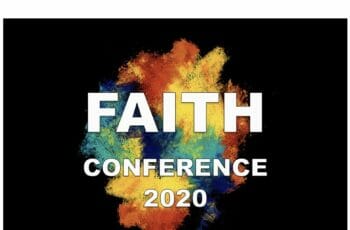Partners in Giving and Receiving
Many Christians seek to give, but don’t know where or how to start. The Bible gives clear answers on questions we have about giving.
To understand more, let’s begin by defining our terms.
MAN’S NEED AND GOD’S SUPPLY
Before we can practice giving, we need to know what the giving is for. Some fundamental concepts to understand are man’s need and God’s supply.
What is a need?
A need is the lack of a necessity that God, through the sufficiency of His grace, stands ready to fill. God is the Provider that meets every need of His people.
Psalms 23:1:
The Lord is my shepherd; I shall not want.
A need is a state that exists at a point in time and requires supply or relief. Once a given need is met, we no longer have that need.
What is a supply?
A supply is a provision that meets a need. God is the ultimate Source of supply.
Philippians 4:19:
But my God shall supply all your need according to his riches in glory by Christ Jesus.
Providing a supply in the material realm can take numerous forms: goods, services, funds, food, clothing, or shelter.
Who are the needy?
In current colloquial usage, a needy person is someone who needs constant affirmation and lacks self-confidence. That’s not the biblical usage of the word “needy.”
In the Bible, the needy are simply those who are in need, generally for a period of time.
Deuteronomy 15:11:
For the poor shall never cease out of the land: therefore I command thee, saying, Thou shalt open thine hand wide unto thy brother, to thy poor, and to thy needy, in thy land.
2 Corinthians 9:9:
(As it is written [Psalms 112:9], He hath dispersed abroad; he hath given to the poor: his righteousness remaineth for ever.
The Bible gives no indication that the same people will always be the ones in need; but it does indicate that there will always be such needs among God’s people.
As a believer, in one circumstance I might be full and abound; in another, I might be hungry and suffer need.
Philippians 4:12:
I know both how to be abased, and I know how to abound: every where and in all things I am instructed both to be full and to be hungry, both to abound and to suffer need.
Having a need at some point is not necessarily an indicator of a lack of believing on my part. A brother can always help.
There are numerous instances in the early church where the believers pooled resources to meet an outstanding need being experienced by certain individuals or groups.
Acts 2:44-45:
And all that believed were together, and had all things common;
And sold their possessions and goods, and parted them to all men, as every man had need.
Following Pentecost, in order to stay where the fire of the Word was burning brightly, numerous converts remained in Jerusalem rather than immediately returning home. These believers needed food, clothing, and shelter, and the believing residents of Jerusalem stepped up to the plate to meet the need.
Another such instance is related in Acts 6.
Acts 6:1-2:
And in those days, when the number of the disciples was multiplied, there arose a murmuring of the Grecians against the Hebrews, because their widows were neglected in the daily ministration [or distribution].
Then the twelve called the multitude of the disciples unto them, and said, It is not reason that we should leave the word of God, and serve tables.
As the church grew, the need arose to care for particular individuals who were not in a position to fully take care of their own needs. Here in Acts 6, the distribution to the widows was one of food. They must have had a need for it! All were to share equally in the benefit distributed.
SPONTANEOUS AND PLANNED GIVING
There are many opportunities to give in this life. Some are anticipated; others are not. To better appreciate how this impacts our charitable giving, it is useful to make a distinction between spontaneous and planned giving.
What is spontaneous giving?
Spontaneous giving is an individual’s decision to give in a particular (and possibly unanticipated) circumstance. Typically it involves a limited number of parties, such as you and the recipient. There is no middleman; you are completely in charge of the situation.
Luke 10:33-37:
But a certain Samaritan, as he journeyed, came where he was: and when he saw him, he had compassion on him,
And went to him, and bound up his wounds, pouring in oil and wine, and set him on his own beast, and brought him to an inn, and took care of him.
And on the morrow when he departed, he took out two pence, and gave them to the host, and said unto him, Take care of him; and whatsoever thou spendest more, when I come again, I will repay thee.
Which now of these three, thinkest thou, was neighbour unto him that fell among the thieves?
And he said, He that shewed mercy on him. Then said Jesus unto him, Go, and do thou likewise.
What is planned giving?
Planned giving is an individual’s decision to participate in a collective effort to pool resources with other believers for a common charitable purpose. Planned giving is based on a trust relationship between the donor and the believers who are organizing the giving opportunity.
INDIVIDUAL AND COLLECTIVE NEEDS
One avenue of giving is to assist the individuals who are in need among us (which can be done at either an individual or a collective level); another is to support the collective efforts of the church in making the Word available to as wide an audience as possible. Each has its place.
The believers of the first-century church helped to meet individual needs through collections and collective needs through partnerships.
GIVING TO MEET INDIVIDUAL NEEDS
What is a collection?
A collection is an effort organized by a group of concerned believers to pool freely-offered resources to supply the need of an identified individual or group of individuals.
Acts 11:28-30:
And there stood up one of them named Agabus, and signified by the Spirit that there should be great dearth throughout all the world: which came to pass in the days of Claudius Caesar.
Then the disciples, every man according to his ability, determined to send relief unto the brethren which dwelt in Judaea:
Which also they did, and sent it to the elders by the hands of Barnabas and Saul.
In this particular instance, the need was very clear: the believers in Jerusalem lacked sustenance. The required relief was for food.
1 Corinthians 16:1,3:
Now concerning the collection for the saints, as I have given order to the churches of Galatia, even so do ye.
And when I come, whomsoever ye shall approve by your letters, them will I send to bring your liberality unto Jerusalem.
A collection need not be financial. It may also be a good or service, or even be in the category of such basic necessities as food, clothing and shelter (think of hospitality as an example).
A special collection should have a specified timeframe. Once the needs are met, the collection can cease and any remaining assets can be dedicated to another charitable purpose.
GIVING TO MEET COLLECTIVE NEEDS
What is a partnership?
A partnership is the decision of one or more believers to commit to ongoing contributions to the church’s collective efforts so as to facilitate the wider dissemination of the Word. The length of the commitment is determined by the desire of the individual contributors involved and the duration of the need at hand.
Our first and most important partnership is with God as we fellowship with Him. We can also have joy in fellowshipping and partnering with other believers as we labor together in the Lord’s harvest.
Philippians 4:15 [ESV]:
And you Philippians yourselves know that in the beginning of the gospel, when I left Macedonia, no church entered into partnership with me in giving and receiving, except you only.
You can contribute in a collection to support the needs of individuals; you can contribute to a partnership to support the need to get the Word out to as many people as can be reached collectively.
RECAP
Let’s review the terms we’ve learned so far.
- A need is the lack of a necessity that God stands ready to fill.A supply is a provision that meets a need.
- The needy are those who are in need, generally for a period of time.
- Spontaneous giving is an individual’s decision to give in a particular (and possibly unanticipated) circumstance.
- Planned giving is an individual’s decision to participate in a collective effort to pool resources with other believers for a common charitable purpose.
- A collection is an effort organized by a group of concerned believers to pool freely-offered resources to supply the need of an identified individual or group of individuals.
- A partnership is the decision of one or more believers to commit to ongoing contributions to the church’s collective efforts so as to facilitate the wider dissemination of the Word.
THE BELIEVER’S GIVING PRIVILEGE TOWARD GOD AND MAN
Armed with this new knowledge, what is our giving privilege before God, our fellow man, and the church?
THE BELIEVER’S GIVING PRIVILEGE TOWARD GOD
Your first and most needful gift is yourself — to God and in service.
2 Corinthians 8:5:
And this they did, not as we hoped, but first gave their own selves to the Lord, and unto us by the will of God.
THE BELIEVER’S GIVING PRIVILEGE TOWARD HIS FELLOW MAN
The only debt we owe our fellow man is to love.
Romans 13:8:
Owe no man any thing, but to love one another: for he that loveth another hath fulfilled the law.
Our giving privilege to do good extends, not only to the believers, but to all.
Galatians 6:10:
As we have therefore opportunity, let us do good unto all men, especially unto them who are of the household of faith.
We are to do good, share what we have, be generous, and be ready to share.
Hebrews 13:16 [ESV]:
Do not neglect to do good and to share what you have, for such sacrifices are pleasing to God.
1 Timothy 6:18 [ESV]:
They are to do good, to be rich in good works, to be generous and ready to share,
THE BELIEVER’S GIVING PRIVILEGE TOWARD THE CHURCH
The work of the ministry will not advance powerfully without committed individuals to lead the effort. We owe love and respect to those who freely offer their services to meet the need for spiritual leadership in the church.
1 Thessalonians 5:12-13:
And we beseech you, brethren, to know them which labour among you, and are over you in the Lord, and admonish you;
And to esteem them very highly in love for their work’s sake. And be at peace among yourselves.
We are to share all good things with those who teach.
Galatians 6:6 [ESV]:
Let the one who is taught the word share all good things with the one who teaches.
When they have a need, we are to send help for their needs.
Philippians 4:16:
For even in Thessalonica ye sent once and again unto my necessity.
THE GIVER’S EXPECTATION AND REWARD
Giving is the sower’s seed-sowing time. God is the One who assures the harvest.
2 Corinthians 9:6:
But this I say, He which soweth sparingly shall reap also sparingly; and he which soweth bountifully [Greek: with blessing] shall reap also bountifully [with blessing].
Why would one sow sparingly? A sower might be reluctant to sow too much seed because he prefers to set more aside so he can roast it or mill it later and make bread to satisfy his appetite.
2 Corinthians 9:10 [ESV]:
He who supplies seed to the sower and bread for food will supply and multiply your seed for sowing and increase the harvest of your righteousness.
Man does need both to sow and to eat. If a man were to selfishly eat all his seed to fill his hunger, he would end up really going hungry for want of future crops. It is up to the man to decide how much seed to set aside for food, and how much seed to set aside for sowing. The more seed he sets aside for crops, the freer he can be in his sowing.
As the Source of all provision, God is the Open Hand Who provides for every living creature.
Psalms 145:16:
Thou openest thine hand, and satisfiest the desire of every living thing.
We come to God’s open hand with open hand to receive. We don’t bring something in our hand, expecting God to give us back something for having given something.
He who believes sows with blessing, scattering the seed abundantly, far and wide, resulting in bounty despite any obstacles that might threaten the crop. He sows with open hand, carefree, with abandon.
We acknowledge that if ever we are to have anything to give, it must come first and foremost from the hand of God Who supplies. He fills us up, up and up and up, until we overflow. That’s the giving part! Our hearts rejoice with thanksgiving.
2 Corinthians 9:12,15:
For the administration of this service not only supplieth the want of the saints, but is abundant also by many thanksgivings unto God;
Thanks be unto God for his unspeakable gift.
Thank God indeed! We have open hands, and open hearts to give.





Responses